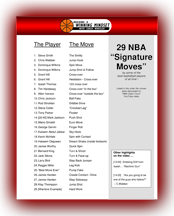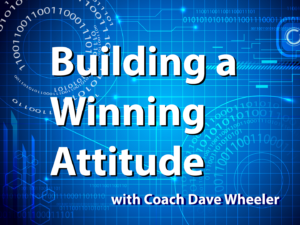 What does it take to become a winner? Many people talk about a “Winning Attitude” but how many actually practice it? How many of us even know what goes into a winning attitude?
What does it take to become a winner? Many people talk about a “Winning Attitude” but how many actually practice it? How many of us even know what goes into a winning attitude?
Today I will look at what goes into a winning attitude, using basketball as the example, and how we can cultivate a winning attitude in ourselves and our teams.
Quick Summary of a Winning Attitude:
- A Winner sets high standards
- A Winner expects to win
- A Winner learns from losses
- A Winner prepares to win
- A Winner embraces challenges
- A Winner enjoys the process
“How you do anything is how you do everything”
Have you ever heard the phrase, “If you want something done, give it to a busy person”? The thinking is that someone who is already busy will already have the habits in place to get things done where someone who finds ways to NOT be busy is simply avoiding getting things done. Winning is a habit and like the saying goes, “How you do anything is how you do everything.” If you have a winning attitude, you will apply it to all aspects of your life. It doesn’t mean you have to be competitive with everyone in your life (that’s called “a jerk”) but you can recognize what your goals are and do whatever is needed to meet those goals.
How do I apply this as part of a Winning Attitude?
There are opportunities every day to “let it slide” or settle for less than the best that you can do. Winners know that if you will give up on the small things you will give up on the big things too. Small actions prepare you for big successes. A Winning Attitude means holding yourself to a higher standard than other people. Most people are not winners. It is a fact of life, but winning is a choice and you can make that choice … every single day.,
“In it to Win it”
If you are going to play, you are going to win. A Winning Attitude is about committing to being a winner. Are you going to win every single time? Not necessarily… but winners start with their goal in mind and focus on what it takes to win.
“Win or Learn”
Even if you are committed to winning, there will be times when you encounter someone who is better prepared or has better strategies or tactics and you come out on the short end of the competition. Does this mean you Lose? Not necessarily… You have a choice. You can either Lose or Learn. If you quit after you are beaten, then you Lose. If you Learn from the experience and apply it to make you and your team better, then you are better prepared to win the next time. As motivational speaker Les Brown says, “It’s not over until I win.”
The Will to Win vs. The Will to Prepare to Win
Winning is a result of preparation. Games are won based on what you do in practice and HOW you practice always shows up in how you play. Winners are always looking for ways to improve, whether it is physically, mentally or by developing their skills.
Embrace The Challenge
Someone with a Winning Attitude is not intimidated by challenges. They are seen as opportunities to test your abilities and develop confidence. Winning means that you find ways to win, even when there are obstacles or strong competition.
In fact, winners enjoy the challenge. They recognize that without challenges and obstacles, they can never find out how good they really are. That’s why going undefeated by playing poor competition can be a curse in disguise. Certainly you want to win when the stakes are the highest, but if you don’t face any competition before the championship game then how do you know if you are ready? Have you faced strong competition that could bring out the best that you have? A winner looks for strong competition because they know that it will make them better.
How do I develop my Winning Attitude?
Practice, Practice, Practice…
Challenge. Learn. Repeat.
A winning attitude is all about
1) Embracing Preparation & Competition,
2) Learning and Growing, and
3) Enjoying the process.
You can change your attitude immediately… if you recognize where it needs to change. This article has given you some ideas but it is up to you to catch yourself when you are not in a “winning attitude” and make the necessary changes.
This sounds hard. Is it realistic?
Like I’ve said before, not everyone is a winner even though anyone can become a winner. Will it take extra effort? Absolutely. Will you have to give up some things that might have been “nice to have”? Sure. Will it be worth it? Certainly.
An excellent book for anyone looki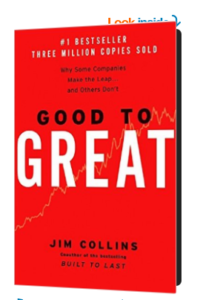 ng to develop a winning attitude is “Good to Great” by Jim Collins. One of the key ideas that Jim Collins writes about is the reason there are so few “Greats”.
ng to develop a winning attitude is “Good to Great” by Jim Collins. One of the key ideas that Jim Collins writes about is the reason there are so few “Greats”.
“Good is the enemy of Great” – Jim Collins
Most people settle for “good” or “good enough” while winners are the ones that go for “Great”. The funny thing Jim Collins found as part of his research for the book was that it takes no more effort to be great. Different effort and concerted, focused effort but not necessarily “more effort”. That begs the question… If you can see yourself as good, why not go for great?
 As a player or coach, how do you work with the referees who are officiating your game? Or are you in a constant battle with them to try to get them to make the “right” call?
As a player or coach, how do you work with the referees who are officiating your game? Or are you in a constant battle with them to try to get them to make the “right” call?

 What does it take to become a winner? Many people talk about a “Winning Attitude” but how many actually practice it? How many of us even know what goes into a winning attitude?
What does it take to become a winner? Many people talk about a “Winning Attitude” but how many actually practice it? How many of us even know what goes into a winning attitude?
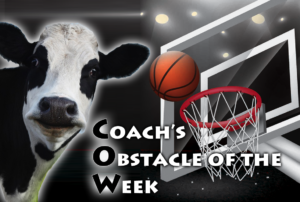 One of the biggest pet peeves I have as a coach is the
One of the biggest pet peeves I have as a coach is the 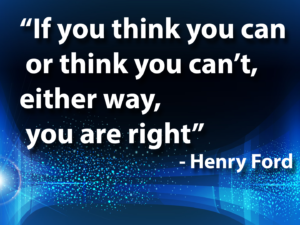 As I mentioned before, one great example is “I can’t”. Whenever you catch yourself saying, or thinking, the words “I can’t”, immediately STOP and take another look at the situation. When you say “I can’t” that implies that you
As I mentioned before, one great example is “I can’t”. Whenever you catch yourself saying, or thinking, the words “I can’t”, immediately STOP and take another look at the situation. When you say “I can’t” that implies that you 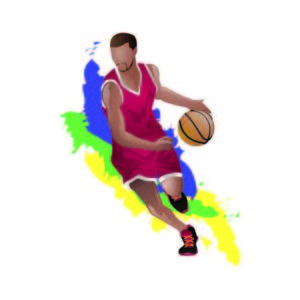 What is your signature move on the basketball court? Do you even have one? Or are you still learning the game and could benefit from adding a few more moves?
What is your signature move on the basketball court? Do you even have one? Or are you still learning the game and could benefit from adding a few more moves?